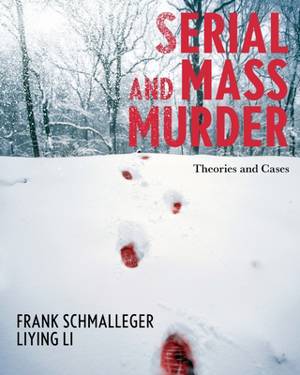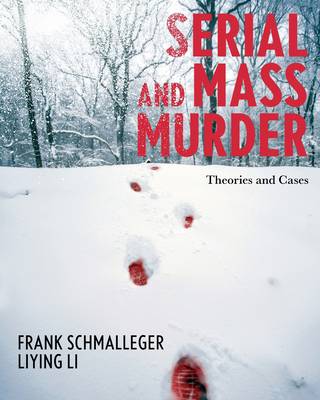
- Afhalen na 1 uur in een winkel met voorraad
- Gratis thuislevering in België vanaf € 30
- Ruim aanbod met 7 miljoen producten
- Afhalen na 1 uur in een winkel met voorraad
- Gratis thuislevering in België vanaf € 30
- Ruim aanbod met 7 miljoen producten
Omschrijving
Serial and Mass Murder: Theories and Cases provides students with a scientifically sound understanding of serial and mass murderers, delving into historical and modern perspectives while bridging various interdisciplinary theoretical perspectives to shed light on the motivations, killing methods, and victims of these criminals.
The book defines serial killers, explores the social, biological, and psychological theories behind their actions, and details the profiling of their identities, killing methods, and victim types. It includes discussions on the diverse categories of serial murderers, including male, female, team, and healthcare serial killers. The book also studies mass murders, examining their various types, the profiles and motivations of perpetrators, their broader societal impact, and measures for prevention. Moreover, the book examines the investigative processes used in tracking and prosecuting these individuals, incorporating technological advancements in forensic science that have revolutionized criminal profiling and pattern recognition. Designed to facilitate deep comprehension and critical thinking, each chapter features learning objectives, critical thinking questions, and key terms. The numerous case studies the book contains provide individual profiles for further study.
Serial and Mass Murder is well suited for upper-division undergraduate courses in criminal justice, criminology, psychology, sociology, and forensics, especially those that explore serial killers, homicide, violent crime, and deviance.
Specificaties
Betrokkenen
- Auteur(s):
- Uitgeverij:
Inhoud
- Aantal bladzijden:
- 286
- Taal:
- Engels
Eigenschappen
- Productcode (EAN):
- 9798823398367
- Verschijningsdatum:
- 26/09/2025
- Uitvoering:
- Paperback
- Formaat:
- Trade paperback (VS)
- Afmetingen:
- 203 mm x 254 mm
- Gewicht:
- 766 g

Alleen bij Standaard Boekhandel
Beoordelingen
We publiceren alleen reviews die voldoen aan de voorwaarden voor reviews. Bekijk onze voorwaarden voor reviews.








